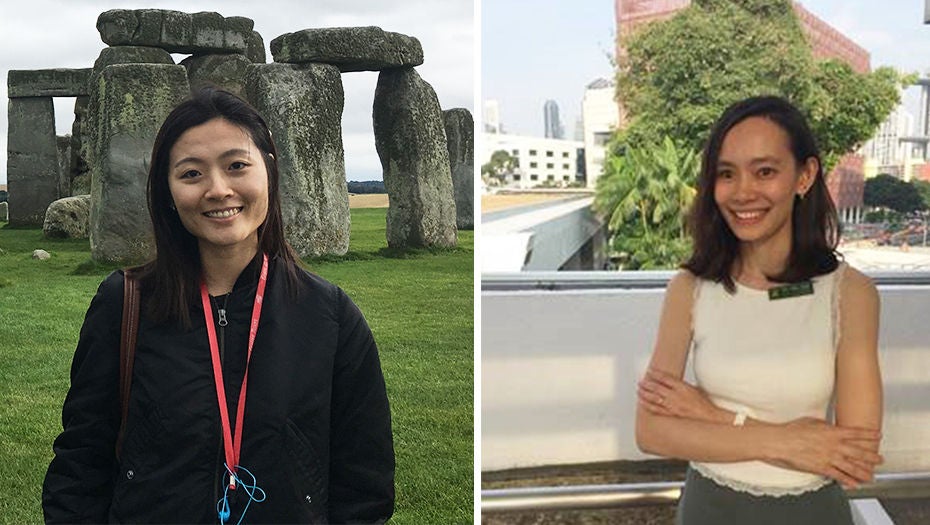
The annual SingHealth Transplant Appreciation Ceremony honours the contributions of exemplary transplant staff and their dedication towards patient care. We shine the spotlight on this year’s Outstanding Transplant Coordinator Award recipients, Khoo Yik Cheong (left) and Tee Ping Sing.
# # # # #
Khoo Yik Cheong
Transplant Coordinator
Transplant Tissue Centre (TTC)
1. What is your role in the Transplant Tissue Centre?
As a Transplant Coordinator, my role is to broach the topic of tissue donation with the patient’s family after the patient’s death. Tissues that can be banked for transplantation include skin, heart valve, iliac vessel and trachea tissues.
Under the Medical (Therapy, Education and Research) Act (MTERA), a deceased patient’s next-of-kin can provide consent on behalf of the patient if he did not pledge or object to donation during his lifetime.
The conversation with the family usually takes place shortly after the passing of their loved one, at a time when the family would be grieving their loss. The sensitivity of the family dynamics and their cultural beliefs have to be taken into consideration as I share about organ and tissue donation with them. The conversation can take between half an hour to an hour.
Once the family has provided consent, I would perform a preliminary evaluation to determine the suitability of the potential donor where I review medical records and conduct a physical assessment to check for trauma in areas where the tissues that will be donated are, as well as signs of high risk behavior that may not be documented.
I also interview the donor’s next-of-kin to find out his/her medical, social, sexual and travel history. After which, the case would be presented to the Medical Director who will determine the eligibility of the donor. Once approval is given, I would ensure that the tissues recovered are in line with the signed consent and to treat the deceased donor with respect at all times
2. What is a little-known fact about your work?
My job requires me to perform the ‘last office’ for the donor, ensuring that the he is thoroughly cleaned and properly dressed before he is returned to the family. The donated tissues are then processed and stored at TTC for life-saving transplantation.
Before each transplant, I also assist in the thawing of tissues and transporting them to the operating theatre.
3. What does the job mean to you?
I am humbled to play a part in this meaningful process of giving the gift of life to those in need. The work begins at the family’s lowest point in life as they come to terms with the loss of their loved one, and ends when I successfully deliver the tissues to the recipients and see them get well again.
# # # # #
Tee Ping Sing
Clinical Transplant Manager
Renal Transplant Unit, SGH
1. What is your role in the renal transplant programme?
I have been with the Renal Transplant Unit as a Transplant Coordinator since 2007. As a pre-transplant coordinator, I help ensure a smooth evaluation for both living and deceased donor renal transplantations.
Living Donor Renal Transplants
Before a living donor renal transplant takes place, we counsel and provide both the potential donor and recipient with important information on the transplant. This is to ensure that they are well-informed before making their decisions. They will then be assessed by a multidisciplinary team comprising Nephrologists, Medical Social Workers, Psychologists, Surgeons, and Cardiologists to evaluate their suitability.
Before the transplant takes place, both the matched donor and the recipient will be interviewed by the Transplant Ethics Committee, which is made up of two independent medical doctors and a layperson. The process usually takes between 3 to 6 months.
Deceased Donor Renal Transplants
Whenever there is a potential deceased kidney donor, the Transplant Coordinator on call will be activated to coordinate the transplant to a suitable recipient from the waitlist registered on the National Transplant Registry System. This coordination process for a deceased donor renal transplant usually takes 15 hours to complete.
Similar to living donor transplants, patients with renal failure have to undergo a series of eligibility evaluations before they can be placed on the waitlist. Over the years, the waitlist has grown to 350 patients and the average waiting time for a suitable kidney is about 8 years. I feel blessed to be part of the team that is bearer of good news to those who have been waiting for donor.
This is my 11th year with the team and my role has expanded to include quality improvement projects where I look at ways to streamline transplantation processes and services to benefit more patients.
2. What does the job mean to you?
Deceased donor renal transplants can bring closure to families who are grieving, and at the same time, provide a new lease of life to those in need. I feel very honoured to be able to facilitate this process for patients and their loved ones. The job has definitely helped me to appreciate the little things in life.













 Get it on Google Play
Get it on Google Play